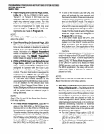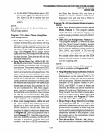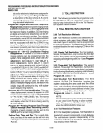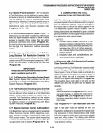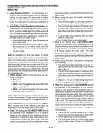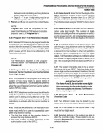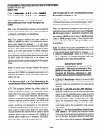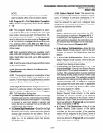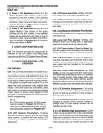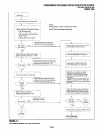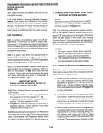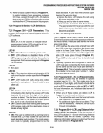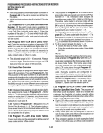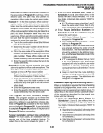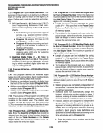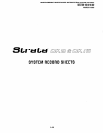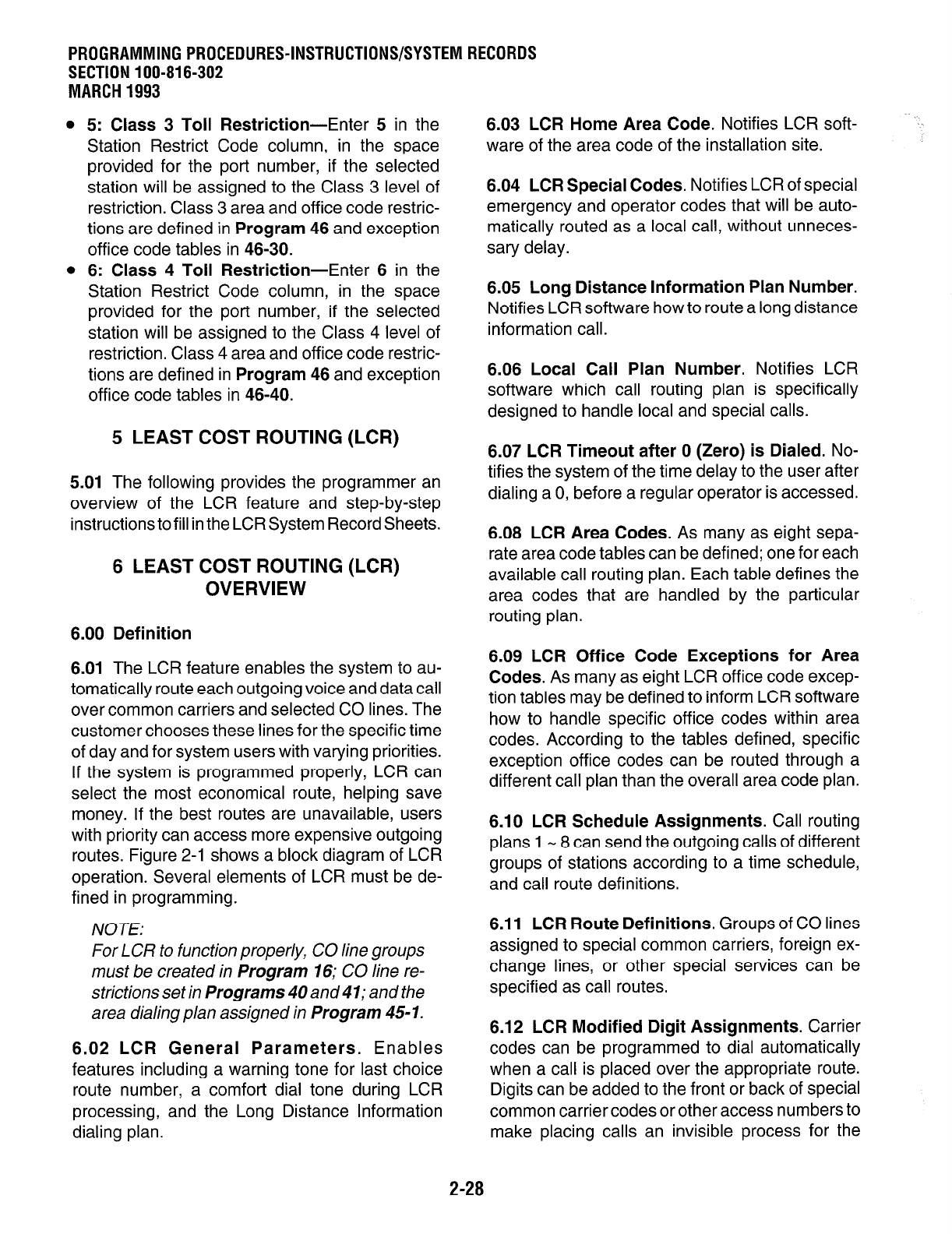
PROGRAMMING PROCEDURES-INSTRUCTIONS/SYSTEM RECORDS
SECTION 100-816-302
MARCH 1993
l
5: Class 3 Toll Restriction-Enter 5 in the
Station Restrict Code column, in the space
provided for the pot-l number, if the selected
station will be assigned to the Class 3 level of
restriction. Class 3 area and office code restric-
tions are defined in Program 46 and exception
office code tables in 46-30.
l
6: Class 4 Toil Restriction-Enter 6 in the
Station Restrict Code column, in the space
provided for the port number, if the selected
station will be assigned to the Class 4 level of
restriction. Class 4 area and office code restric-
tions are defined in Program 46 and exception
office code tables in 46-40.
6.03 LCR Home Area Code. Notifies LCR soft-
ware of the area code of the installation site.
6.04 LCR Special Codes. Notifies LCR of special
emergency and operator codes that will be auto-
matically routed as a local call, without unneces-
sary delay.
6.05 Long Distance Information Plan Number.
Notifies LCR software how to route a long distance
information call.
6.06 Local Call Plan Number. Notifies LCR
software which call routing plan is specifically
designed to handle local and special calls.
5 LEAST COST ROUTING (LCR)
5.01 The following provides the programmer an
overview of the LCR feature and step-by-step
instructions to fill in the LCR System Record Sheets.
6.07 LCR Timeout after 0 (Zero) is Dialed. No-
tifies the system of the time delay to the user after
dialing a 0, before a regular operator is accessed.
6 LEAST COST ROUTING (LCR)
OVERVIEW
6.08 LCR Area Codes. As many as eight sepa-
rate area code tables can be defined; one for each
available call routing plan. Each table defines the
area codes that are handled by the particular
routing plan.
6.00 Definition
6.01 The LCR feature enables the system to au-
tomatically route each outgoing voice and data call
over common carriers and selected CO lines. The
customer chooses these lines for the specific time
of day and for system users with varying priorities.
If the system is programmed properly, LCR can
select the most economical route, helping save
money. If the best routes are unavailable, users
with priority can access more expensive outgoing
routes. Figure 2-l shows a block diagram of LCR
operation. Several elements of LCR must be de-
fined in programming.
6.09 LCR Office Code Exceptions for Area
Codes. As many as eight LCR off ice code excep-
tion tables may be defined to inform LCR software
how to handle specific office codes within area
codes. According to the tables defined, specific
exception office codes can be routed through a
different call plan than the overall area code plan.
6.10 LCR Schedule Assignments. Call routing
plans 1 - 8 can send the outgoing calls of different
groups of stations according to a time schedule,
and call route definitions.
NOTE:
For LCR to function properly, CO line groups
must be created in Program 16; CO line re-
strictions set in Programs 40 and 41; and the
area dialing plan assigned in Program 45-1.
6.11 LCR Route Definitions. Groups of CO lines
assigned to special common carriers, foreign ex-
change lines, or other special services can be
specified as call routes.
6.02 LCR General Parameters. Enables
features including a warning tone for last choice
route number, a comfort dial tone during LCR
processing, and the Long Distance Information
dialing plan.
6.12 LCR Modified Digit Assignments. Carrier
codes can be programmed to dial automatically
when a call is placed over the appropriate route.
Digits can be added to the front or back of special
common carrier codes or other access numbers to
make placing calls an invisible process for the
2-28



